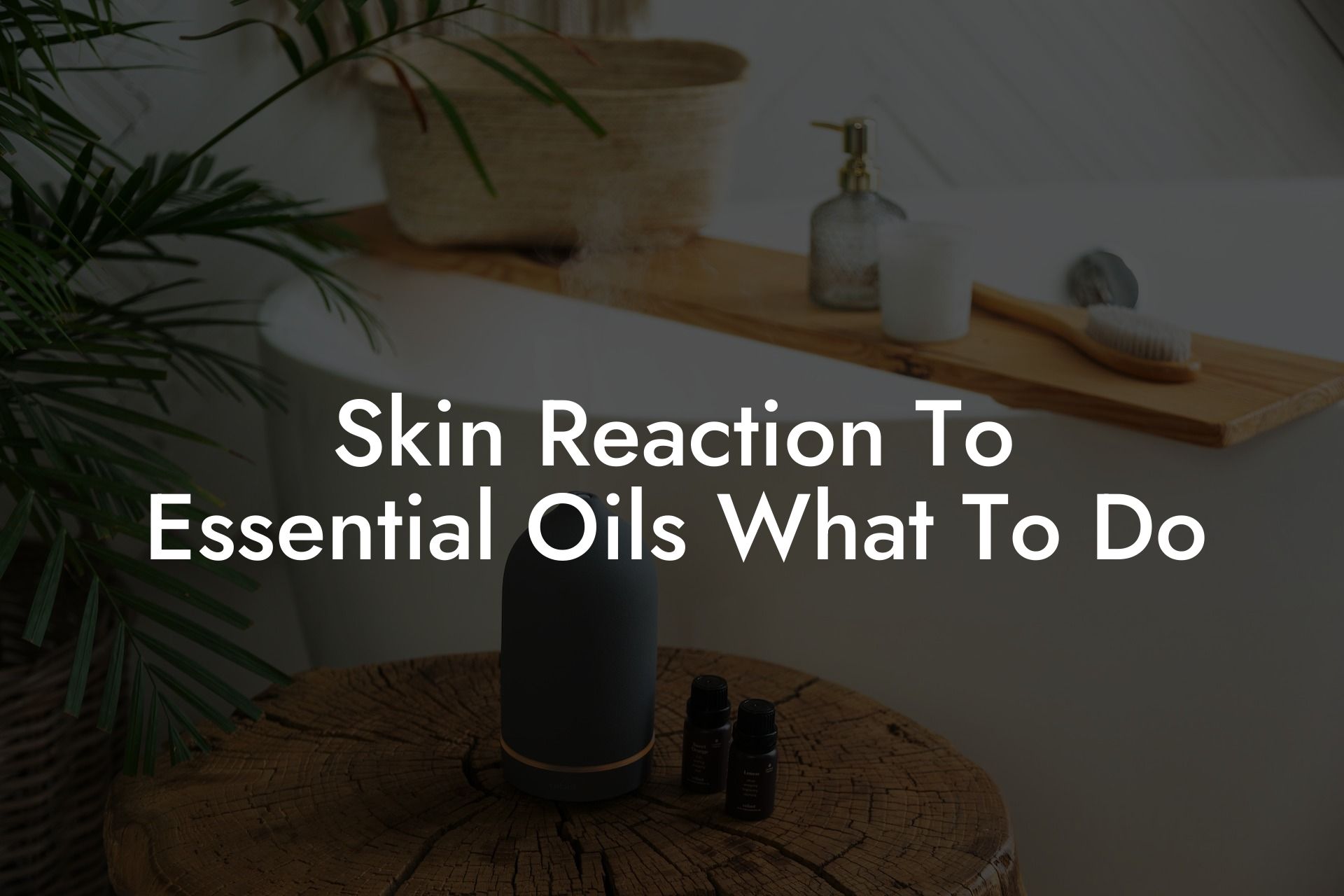Skin reactions to essential oils can be an unpleasant surprise for many individuals hoping to reap their numerous health benefits. But fear not, as understanding the causes, remedies, and prevention strategies for these reactions is key to safely enjoying essential oils in your daily life. Read on to learn what to do in case you experience a skin reaction, and how to avoid such incidents in the future.
Causes of Skin Reactions
It is important to understand the root cause of skin reactions, so let’s dive into some of the common factors involved:
- Sensitivity: Some individuals are more prone to experiencing skin reactions due to their delicate and sensitive skin, making them reactive to certain essential oils.
- Allergies: A person may be allergic to a specific essential oil or one of its constituents, leading to a skin reaction.
- Photosensitivity: Some essential oils, such as citrus oils, can make your skin more sensitive to sunlight, increasing the risk of sunburn and skin reactions when exposed to UV rays.
- Undiluted Oils: Applying undiluted essential oils directly to the skin can trigger a reaction, as concentrated oils can be irritating.
Treating the Reaction
If you face a skin reaction from essential oils, follow these steps to manage the symptoms and help your skin heal:
- Wash the area: Gently clean the affected skin with mild soap and cool water to remove any remnants of the oil.
- Cool Compress: Apply a cold, damp cloth to the affected area to help reduce inflammation and relieve discomfort.
- Soothing Cream: Apply a soothing cream or lotion, such as a product containing aloe vera or calendula, to help calm the irritation and promote healing.
- Antihistamines: If your reaction is due to an allergic response, over-the-counter oral antihistamines may help alleviate symptoms.
- Seek Medical Attention: In cases of severe reactions, such as blistering, difficulty breathing, or swelling of the face, seek immediate medical attention.
Preventing Future Reactions
To avoid skin reactions to essential oils, consider implementing the following precautions:
- Patch Test: Before using a new essential oil, perform a patch test by applying a diluted oil to a small area of skin and waiting for 24 hours to see if a reaction occurs.
- Proper Dilution: Always dilute essential oils with a carrier oil, such as sweet almond, jojoba, or coconut oil, before applying them to your skin. This reduces their potential to cause irritation.
- Avoiding Photosensitive Oils: Reduce the risk of sun-induced reactions by avoiding photosensitive oils, especially on exposed skin areas, or by using them at least 12 hours before sun exposure.
- Seek Professional Advice: Consult with an aromatherapist or healthcare professional to determine the appropriateness of specific essential oils for your individual needs and to receive personalized recommendations.
Skin Reaction To Essential Oils What To Do Example:
Imagine you’ve just applied a few drops of undiluted lemon essential oil to your wrists and start to notice a tingling sensation and redness. You react quickly by washing the area with mild soap and water. Applying a cold compress helps soothe the discomfort, and a gentle aloe vera cream promotes healing. Learning from this experience, you decide to always dilute essential oils with a carrier oil before applying them to your skin. You also begin performing patch tests with new oils and avoid using photosensitive oils before sun exposure.
As you now know, skin reactions to essential oils can be managed effectively and even prevented with the right steps. By understanding the causes of these reactions, treating them promptly, and taking necessary precautions, you can safely enjoy the numerous benefits essential oils have to offer. If you found this guide helpful, please share it with others who may also benefit from this information. Explore more guides on Oshu Oils to learn about essential oils and aromacology, and don’t forget to check out our range of expertly blended essential oils for your wellbeing needs.





















